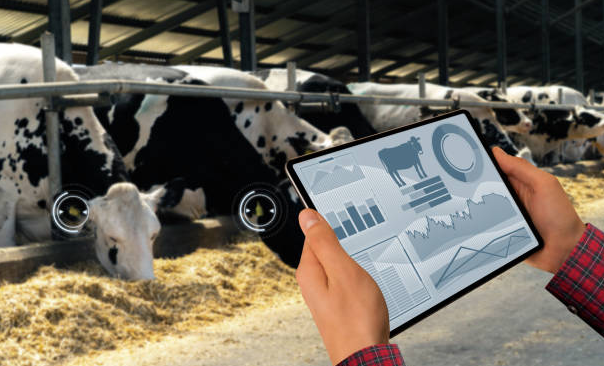From time immemorial, domesticated animals have played an important role in shaping human civilisation, as livestock was the main source of food and clothing for men. Supporting over 1.3 billion people globally, livestock contributes about 40% to agricultural output. Livestock recycles farm waste, supplies natural fertilisers, supports biodiversity and global trade, thus becoming essential for economic, environmental and food systems sustainability.
By 2050, the global demand for livestock products like milk, meat and eggs is projected to rise by 30-50%, driven by population growth, rising incomes, urbanisation and changing lifestyle. However, livestock farming poses numerous challenges like greenhouse gas emissions (14.5% globally), deforestation, soil erosion, water pollution, disease transmission and antibiotic/antimicrobial resistance. To meet the growing demand without harming the ecosystem, a shift towards sustainable livestock farming is essential, requiring integrating eco-friendly practices and innovative technologies for optimum animal productivity, environmental care and sustainability.
Reducing GHG Emissions
Livestock contributes significantly to global greenhouse gas (GHG) emissions, making mitigation a top priority using strategies like improving animal nutrition, using methane-reducing feed additives (e.g., sunflower oil), manipulating rumen micro-biota and adopting better livestock grazing practices. Carbon sequestration can be enhanced through agro-forestry and silvi-pastoral systems.
Selective breeding for climate resilience, disease resistance and feed efficiency can also reduce emissions. In India, livestock farming is largely extensive and fragmented, posing technology adoption challenges. However, farmer awareness and localised innovations are making an impact. SKUAST-K has successfully integrated agroforestry and silvi-pasture at its livestock research centres, improving both fodder quantity and quality.
The varsity has also developed a Horti-poultry model, rearing meat-and egg-type poultry in apple orchards for added benefits. New Zealand’s under-trial methane-reducing vaccine, ongoing J&K’s breed improvement through crossbreeding of exotic (HF, Jersey) and indigenous breeds (Murrah buffalo, Ongole, Deoni cattle) are innovations in this endeavour.
The Central Sheep & Wool Research Institute developed Avishaan sheep and SKUAST-K’s fecundity gene transgressions have enhanced sheep productivity. Dairy units with high-yielding cattle and commercial sheep farms (500+ animals) are being supported by the J&K government, advancing towards milk and mutton self-sufficiency, narrowing the gap between imports and exports and promoting youth-led entrepreneurship in the region.
Efficient Resource Management
Sustainable livestock farming depends on the efficient use of resources like feed, water and land. Precision feeding and rotational grazing reduce farm waste and improve soil health. Alternative feed sources like insect-based meals (e.g., Black Soldier Fly), algae, and microbial biomass can reduce the negative impact of livestock farms on the environment. A Kerala farmer, Anoop, turned kitchen-waste into high-protein Black Soldier Fly larvae. SKUAST-K has explored non-conventional feed ingredients such as apple pomace, silkworm pupae, tree leaves and water algae as animal feeds.
Efficient irrigation, water conservation and effluent management are vital to farm sustainability. Manure management through composting, vermi-composting and integration with crop residues improves soil health while reducing GHG emissions. In J&K, vermi-composting as a profitable enterprise is rising with Government support and SKUAST-K produces over 200 quintals annually at its Dairy Research Institute in Mansbal. The peripheral farm science centres (KVKs) are skilling farmers in these high-profit areas.
Use of Innovative Technologies in Livestock Farming
Modern livestock farming uses sensors, cameras and software to monitor animal health, behaviour and environment in real time, enabling data-driven decision-making. Technologies like sensors, AI dataanalytics and automated feeding systems are transforming animal care. Smart collars and ear tags track location, feeding, fertility and physiological parameters to predict productivity and health issues.
SKUAST-K has implemented IoT-based ear tags from WeStock and collars from Hanuinnotech to monitor dairy cattle health and environmental data. CCTV cameras are used to observe animal behaviour and welfare remotely. Robotics and automation assist in milking, feeding, cleaning, and agri-drones are used to monitor pastures and herds. Milking machines, now widely used across Jammu & Kashmir, are subsidised by the government for greater entrepreneurship development in the dairy sector. Blockchain and traceability technologies enhance food safety and consumer trust by tracking animals from farm to fork, enabling premium pricing for certified animal-origin products. Such systems are already standard and practised in developed countries where animal products are source-labelled in supermarkets.
Improving Animal Health and Welfare
Improving veterinary services and enhancing disease surveillance is key to improving animal performance and health, food safety and reducing antimicrobial resistance. Proactive health management through advanced diagnostics, precision medicine and preventive vaccinations helps prevent disease outbreaks and assure optimum productivity and production. Key strategies include strengthening labs and diagnostics, investing in regional reference labs, efficient field-ready testing kits, and cold chain infrastructure. Mobile veterinary clinics, rural veterinary workforce development and Public-Private Partnerships in vaccine technology are essential.
India leads in door-to-door animal healthcare services. Veterinary ambulances operate in many states and mobile embryo transfer labs are active in Punjab and Haryana for on-site IVF procedures. In J&K, 24×7 mobile vet services (dial 1962) now offer emergency care with trained staff and basic equipment. SKUAST-K’s Centre of Excellence on Animal Reproductive Biotechnology at Mansbal is doing a great job in development of quality dairy herd through sexed semen technology for dissemination at field level. District level Krishi Vigyan Kendras and Veterinary Clinics at Shuhama Ganderbal regularly hold health camps in remote areas for better animal health.
Government Policies and Regulations
Effective policies are vital for steering livestock production towards resilience and sustainability. Priority actions include disease eradication, vaccination, public awareness programs, and livestock insurance against natural and man-made calamities. Strict regulations on farm waste management and GHG emissions are essential. Governments must incentivize sustainable farm practices and support investments in livestock infrastructure by entrepreneurs, FPOs and industry partners. Strengthening and innovating extension services to educate farmers on sustainable technologies and practices are crucial.
Globally, FAO and the World Bank support sustainable livestock and agri-food systems through technical and financial aid. In India, initiatives like the National Livestock Mission (focusing on breed improvement, feed/fodder, innovation and extension) and schemes like IDDS (Dairy) and IPDP (Poultry) promote sustainability. Conversion of farm waste-to-wealth efforts are supported and funded for biogas and vermi-compost production.
In the UT of Jammu & Kashmir, the Holistic Agriculture Development Program (HADP) is driving a transformative shift towards sustainable, commercial and secondary agriculture. With a strong focus on dairy, poultry and fodder development through innovative and eco-friendly technologies, HADP supports 26 other diverse projects aimed at reshaping the region’s agricultural landscape, unlocking its full potential making J&K as a model bio-economy for developed India@2047.
In nutshell, by embracing advanced and cutting-edge technologies, sustainable practices and farmer-centric policies, India is well-positioned to lead the livestock systems transformation, ensure food safety and nutritional security and create robust sector-specific livelihoods. Innovation-led resilient livestock sector will not only strengthen the country’s rural economy but also serve as a model for climate-smart farming and inclusive growth.
(Author is the Head Division of Animal Physiology, FVSc, SKUAST-K)








